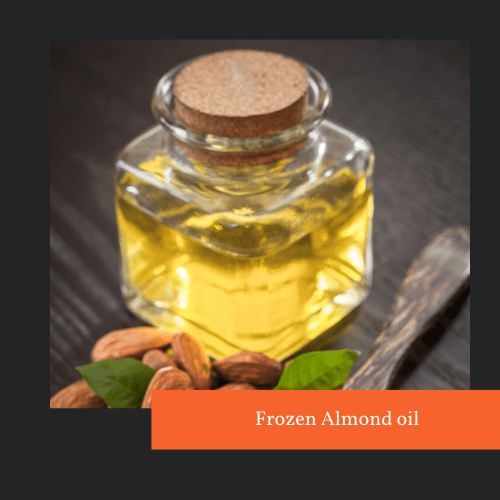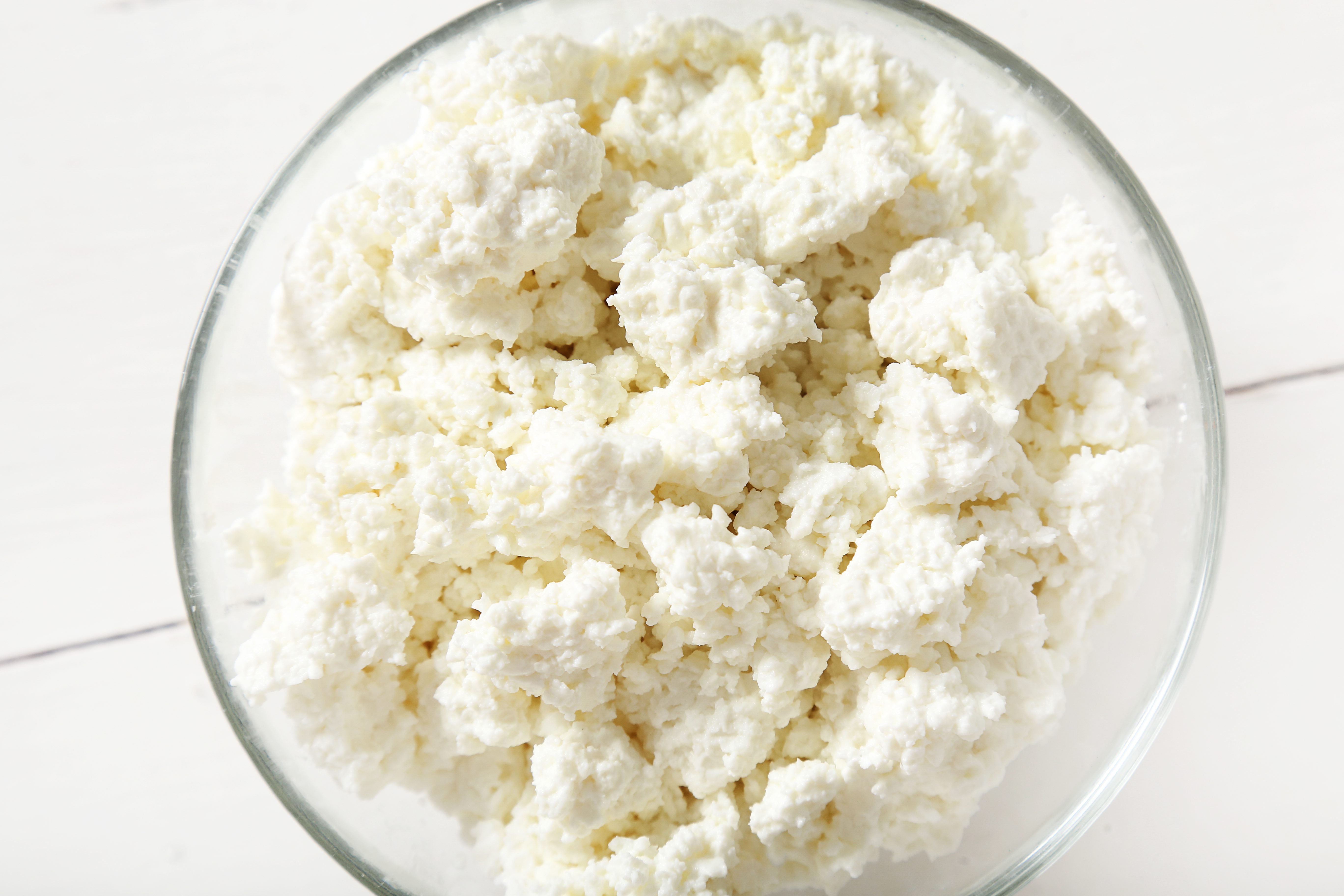Frozen Almond milk?
Calcium is very important for strong bones and when you think about calcium, milk is the first thing that comes to mind.
However, if you are intolerant to lactose then, almond milk is one of the dairy products that are suitable to drink.
It is the best alternative for dairy milk as it has calcium as well as other nutrients. It is the most popular milk available in the market. Beyond the traditional cow’s milk, the milk section has expanded a lot.
Now the question arises can almond oil be frozen? The answer to this question is simply yes we can.
The color, taste, and texture will get affected a little bit however, vigorous stirring and good blender get back to its original form.
In this article, we will discuss how to store, freeze, and thaw almond oil to use it properly without getting bad.
How to freeze Almond milk?
Yes, almond milk can be frozen but there are some advantages and disadvantages of freezing almond milk. Below is the detail mentioned.
Pros of Almond milk:
- A vegan alternate to dairy milk.
- Good for people with gluten sensitivity and lactose intolerance.
- As compared to soy milk it has less protein content however, other positive points cater to this loss.
- Proteins can be added from plant-based sources. E.g. legumes.
- Low calories.
- Saturated healthy fats are included.
- Source of calcium and phosphorus.
Cons of Almond milk:
Apart from benefits, almond milk has some side effects too. Though shelf life can be enhanced, there are some drawbacks as well and some manufacturers do not recommend freezing.
- Some people develop allergies to nuts so they should avoid taking nuts.
- The texture and consistency also get affected and the structure of the milk is broken down.
- Color and taste also change.
- Shorter storage life as compared to the fresh one.
Should you freeze Almond milk?
Is it worth it?
Many producers of almond milk do not suggest freezing for two points.
- Mostly almond milk is marketed with a storage life of months without opening. This is a great way to store it till the expiry date.
- The biochemical changes in the freezer damage the consistency, texture, color, and flavor.
- To save the milk from damage because of these biochemical changes and to protect the nutritional value of the product there are many ways to decrease effects.
- Put the milk in the freezer and go ahead. Make sure when you defrost the milk, it has a storage life of 3-5 days.
The flavor and textural changes
Almond milk is comprised of small particles suspended in 88% solution of water. Fundamentally they are
- tiny particles of almonds
- cellulose
- Proteins
- a little fiber
- fat droplets.
Each molecule has its own freezing point. Water has a higher freezing point as compared to almond protein or fat.
The water molecules begin to organize themselves as the temperature drops pushing the other components to the bottom.
The fat layer eventually freezes as these dissolve into the fat layer because it is heavier in comparison with water.
- This separation phase also tells about the color change in the frozen almond milk.
- The yellowish tinge is visible as the fats are meeting together
Note:
- All molecules have different freezing points.
- The separation will stay visible after fully thawing almond milk.
- The effects can be reversed by vibrant shaking, blending, or stirring almond
- The lipids, proteins, and other constituents are re-suspended again in the previous water phase and yellowness must be disappeared after proper blending.
- Store-bought almond milk has emulsifiers that recombine the components. At home addition of a sunflower, lecithin emulsifier can be a helpful choice.
- Refrigerate your thawed almond milk, after stirring or blending well and use between 3-5 days. Before usage, it may still need a vigorous shake.
When to freeze Almond milk?
- It is recommended to freeze this nutty milk only when a recipe calls for it.
- The taste and texture change slightly if blending is done after defrosting and making it a part of the dish. This thing does not matter at all.
Tip
Try different brands to get the best-frozen almond oil. Some of the oils freeze better as compared to others and selecting one is based on personal choice.
How to freeze Almond oil?

Below are the ways of freezing almond oil to increase the shelf life of the oil without getting spoiled and can be used after the date of expiry.
- Ice cube tray is the best option for freezing almond oil in small quantity. After solidification, the cubes should be transferred to plastic bags.
- Freeze the almond oil in its packaging before opening.
- One precaution that must always be taken is to minimize oxygen exposure while freezing almond milk.
- Freezing almond milk in its original bottle or box is not possible, pour the milk in an air-sealed jar.
- Do not overfill the container as the almond milk is water mostly so in a frozen state it will expand.
- Make sure to leave 1-2 inch space from the top.
Freezing the almond milk in ice cube trays is very easy to defrost directly as much as you require.
Tip:
The volume of the single ice cube is measured to calculate the number of cubes to defrost for a recipe.
Thawing Almond milk
Almond milk must be thawed in the fridge however, room temperature must be avoided:
- as it will speed up the spoilage and the separation effects would be worse.
- The process of deterioration is a bit slower in the fridge though biochemical processes are impaired by freezing but not fully stopped.
Almond milk has a shelf life of 3-5 days after defrosting.
Uses of Frozen Almond Milk
- In a curry or sauce recipe, frozen-thawed almond milk is best. The textural changes are not noticeable while cooking with it.
- After blending and thawing, almond oil can be eaten just the way you drink it fresh with a little affect in texture and flavor.
- Gentle heating is preferred to get a thick texture.
- Ice cube tray method is preferred and can be mixed into curries, smoothies, and stews directly.
How to Defrost Frozen Almond Milk
To defrost the almond milk, there are many options.
- Put it in the fridge.
- Defrost in lukewarm water.
- Thawing directly during cooking.
- Make sure to properly mix the liquid once defrosted or proper stirring is done.
- Use the defrosted nutty drink within 1-2 days.
Uses of Defrosted Almond Milk
Thawed milk is used in many ways.
- Shakes and smoothies.
- Coffee creamer.
- Cooked dishes.
- Baking.
- Drink it.
- Desert.
- Cereals.
When to Freeze Almond Milk?
- It’s time to freeze the milk when you have plenty of it and there is no quick usage.
- After opening the carton of dairy milk it cannot be stored in your kitchen.
- It has to be refrigerated and can be used within 7-10 days.
- To extend the storage life, the milk has to be frozen.
- Thawed milk should be used as soon as possible after taking it out of the freezer.
- The milk should be frozen in small portions to use the milk wisely upon requirement.
Does Almond milk expire?
Similar to other dairy and non-dairy milk, almond oil also gets spoiled. After thawing even frozen milk goes bad. The spoiled milk is not suitable for consumption as it causes
- Vomiting.
- Stomach cramps.
- Diarrhea.
Now let’s lookout for the signs of spoiled milk.
Signs of spoiled milk
The spoiled dairy milk can easily be differentiated by sour smell or appearance but the nut milk is difficult to differentiate.
Following are the signs of spoiled milk that is not good for consumption.
- The off smell in spoiled milk is an indication of bacterial growth.
- The sense organ is helpful to recognize spoiled milk and the taste will change into sour.
- The texture and consistency should be observed clearly as the spoiled milk will be slimy, thicker and clumps will be formed in it.
- The color change is also an indication.
- The carton is usually bloated if the milk gets spoiled inside the packet.
The answer to the question is yes you can freeze almond milk but milk should be defrosted when required.
Conclusion:
In this article, we have concluded that almond milk can be frozen to enhance the shelf life and consume before getting spoiled. Almond milk is the best alternative to dairy milk. Spoiled dairy milk causes many health problems so freezing is the best solution to preserve milk for further usage.
Frequently Asked Questions
1. Can you freeze almond oil?
Yes, as almonds have oil in it, it goes bad at high temperature neither it stays well at normal temperature so freezing the oil is the best solution to preserve the oil.
2. Which oils should be refrigerated?
According to research, oils are comprised of polyunsaturated fatty acids like a seed, nut, and fish oils are exclusively affected by the oxidation process so they must be refrigerated.
3. Can expire almond milk make you sick?
Just like other milk, you will get affected by drinking spoiled almond milk. It causes food poisoning. Almond milk might have fewer bacteria as compared to dairy milk however, the spores of the bacteria might still grow if the container or jar is left open.
You should refrigerate almond milk and follow hygienic handling and storage.
4. Is almond skin toxic?
Studies show the best way to enjoy almonds is to soak them and remove the skin. There are tannins in the skin of the nut which hinders the absorption of nutrients completely. In addition to this, the skin is hardly digested.
5. Can you freeze smoothies made with almond milk?
The smoothies can be frozen in any container or jar that is freezer-friendly or else if the smoothie expands on freezing the glass might break.



